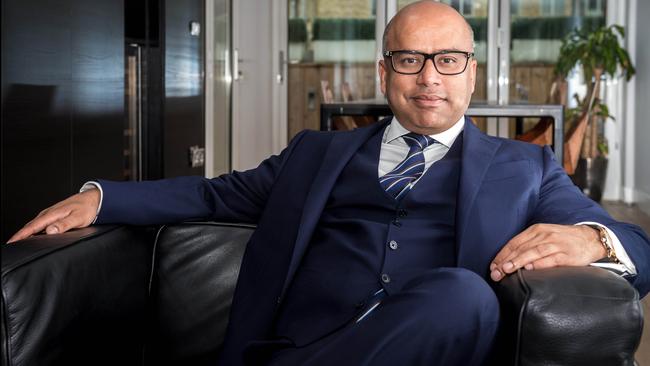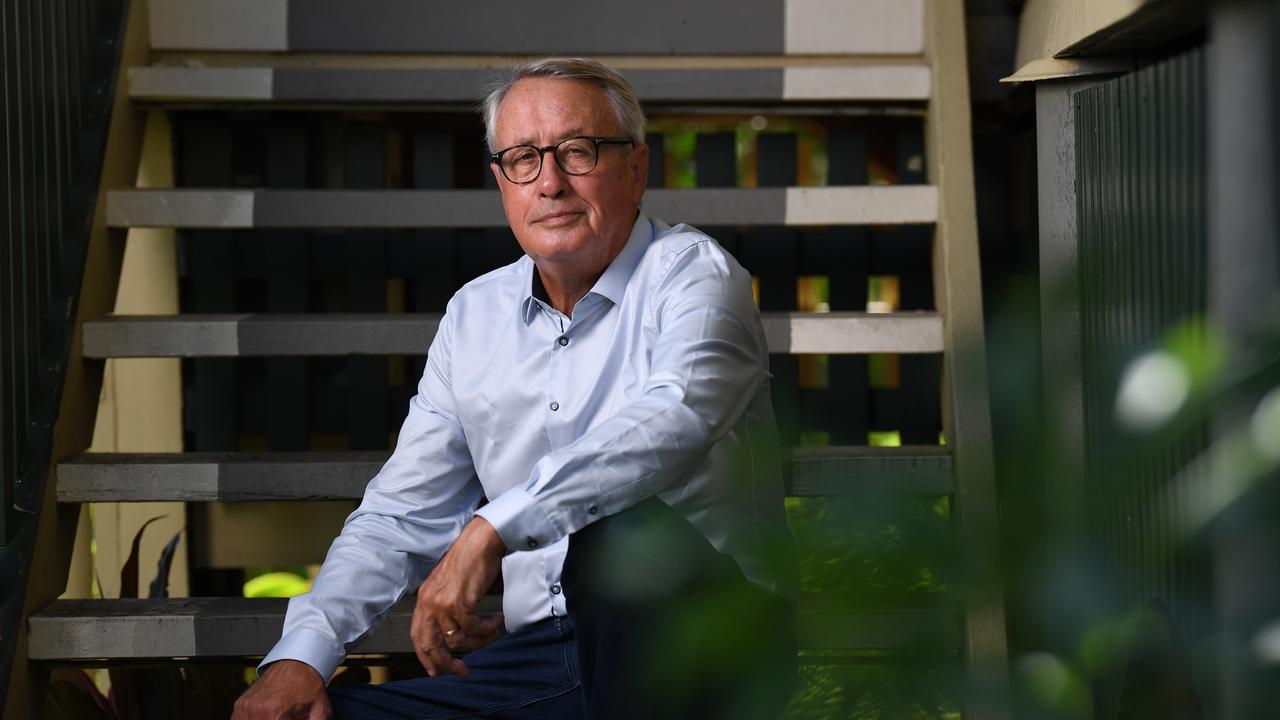Can Britain’s man of steel Sanjeev Gupta save Whyalla?
One of the bidders for the failed Arrium companies is a British billionaire with a reputation for saving jobs.

One of the final bidders for the failed Arrium consortium of companies, forming Whyalla’s industrial heartland, is a billionaire British industrialist who once paid Welsh steel workers for more than a year not to work and reopened a “basket case’’ steelworks in Scotland hiring even more workers.
The reputation of Sanjeev Gupta is such that Roy Rickhuss, the general secretary of the heavyweight British steelworkers union, the Community Union, has even spoken to the Australian Workers Union of Gupta’s “good and productive” working relationship.
The Whyalla township might also be reassured that Gupta has bucked the mining downturn and proved the naysayers wrong. When people are screaming that the steel industry is broken, Gupta has reopened closed plants; when the price or iron ore has plummeted, Gupta invests even more. He has never forced a worker to take a redundancy.
“I was told I was crazy and completely nuts,” Gupta revealed to The Weekend Australian in an exclusive interview from his Mayfair headquarters, noting his decision at the former Alpha steel mill in Newport, Wales, to keep 150 workers on full pay for six months and then half pay for more than a year, allowing them to take other work, until he could get the plant ready to resume.
“I don’t make workers redundant, but I am also not a soft touch. It is a business decision.”
But he acknowledges those same workers who faced 2½ years of uncertainty now walk on air and he has a strong respect for his workers.
“When I went to restart we did it in record time without any troubles, which is tantamount to the workers and the pride they have in their skills,” he said.
Gupta, the 45-year-old head of Liberty House Group, has aligned with his father, Parduman Gupta, who owns the multinational giant SIMEC, to form GFG Alliance, a company with global turnover of $US9.4 billion ($12.5bn) and net assets of $US1.4bn to bid for Arrium, which is South Australia’s biggest employer.
GFG is one of two global giants interested in Arrium, the former OneSteel offshoot of BHP that has been in the hands of administrators for a year after buckling under debts of $4bn, of which $2.4bn is held by Australia’s big four banks.
The decision about to be made could affect an entire generation of South Australian workers. Bids close at the end of this month and the winning tender is due to be announced at the end of July.
As well as GFG, administrator Korda Mentha has received a bid from private equity investors Posco Capital, the South Korean venture capital arm of one of the biggest steelmakers in the world, Posco.
While Posco Capital’s bid is centred around a new technology called FINEX, Gupta’s plans are to draw on skills of his executives who have turned around companies in the past, and value add as well as helping other parts of his steel and industrial businesses in Britain and the US.
He has headhunted Michael Morley — who led the redevelopment of the Port Pirie smelter — to head his Australian branch, alongside a former banker and financier and operator of two large iron ore mines, Jay Hambro, and the respected former Tata Steel chief, Jon Bolton.
“Both bidders are seeking to purchase the Arrium Australia business in one line,” Korda Mentha has told the Australian Securities Exchange, confirming the sale of both Arrium Mining which incorporates the Whyalla port and Middleback Ranges mining operations, and Arrium Steel, the country’s only manufacturer of steel long products and a recycling business.
“The outcome of the next stage of the process will be to receive unconditional bids that can be accepted and completed swiftly.”
Both bids have plans for Arrium plants not only to be self-supporting but to contribute to the troubled South Australian energy grid, to enhance the state’s energy reliability, although Gupta would not reveal how this would be achieved because of the confidential nature of the bid process.
In Britain he has promoted green technology — at one power plant he even uses waste fish oil — and he is also an advocate for cleaner use of coal.
Details of the GFG bid are guarded, but the enthusiastic intentions of Gupta, who has reinvigorated industrial wastelands in Britain and the US, is clearly indicated by his corporate history: he has never sold a company and when he buys a plant he invests heavily to turn it around.
He is a firm believer in using the raw materials to value-add at the source. Iron ore now exported to China could instead be used to make steel in South Australia for domestic consumption and also exported to regional markets.
Gupta said his financial commitment to Arrium would be “significant” and long term.
“This is not a time to gamble, it’s time to steady the ship,” he said, acknowledging that the steel industry would continue to be a low-margin operation. But he said Whyalla was “like a tree, requiring pruning and watering”.
Gupta was born into a steelmaking and industrial family: his grandfather owned a steel mill in India and his father developed another empire in India on the back of Victor bicycles.
Gupta’s love of business, what he calls “disease to work”, started young. He began trading while at Cambridge University, and had to move his office from the campus when it was turning over £1 million because the university had a tax-free status.
In the past few years Gupta has remained convinced of a prosperous industrial future and has largely focused on picking up distressed Anglo-American assets. His interest in Whyalla was sparked when looking for Australian resources and he realised it would dovetail with his most recent acquisitions.
In the past two years Gupta has confirmed or saved more than 4000 jobs in the troubled steel sector in Britain. He snapped up the Lochaber hydro-electric plant and aluminium smelting plant in Scotland from Rio Tinto, and the engineering firm CovPress.
But he is best known in Britain for acquiring the specialised steel assets of Tata, reopening one of Tata’s closed plants in Dalzell near Scotland, and saving 1700 jobs at three Yorkshire steel mills — Rotherham, Stocksbridge, and Brinsworth.
Roy Rickhuss, a former steelworker who heads the Community Union, acknowledged that Gupta’s zeal had helped stabilise and even reinvigorate a difficult steel industry in Britain.
Said Rickhuss: “I have no problem saying we have a very good relationship. He wants to work with trade unions and resolve differences with dialogue. Sanjeev has been investing heavily in the UK and for the steel industry to have the best chance to survive it comes down to the owners and the need to invest.”



